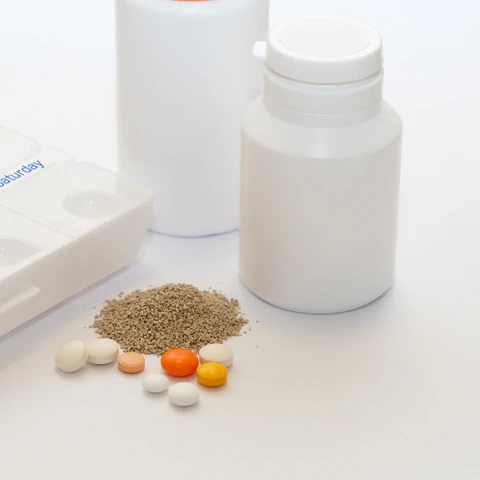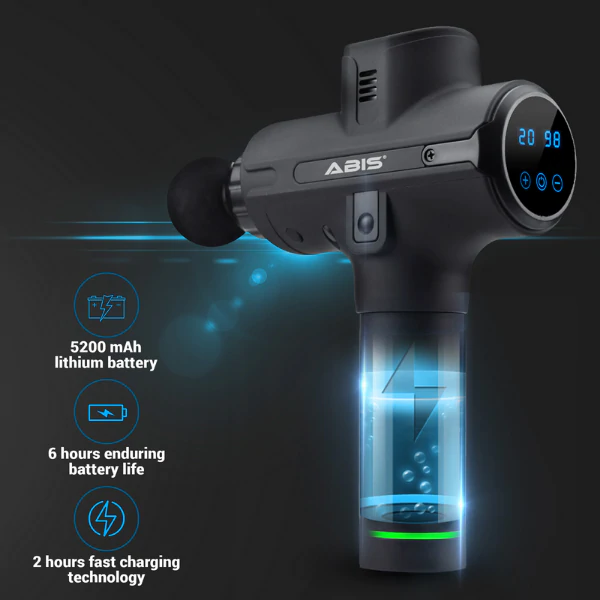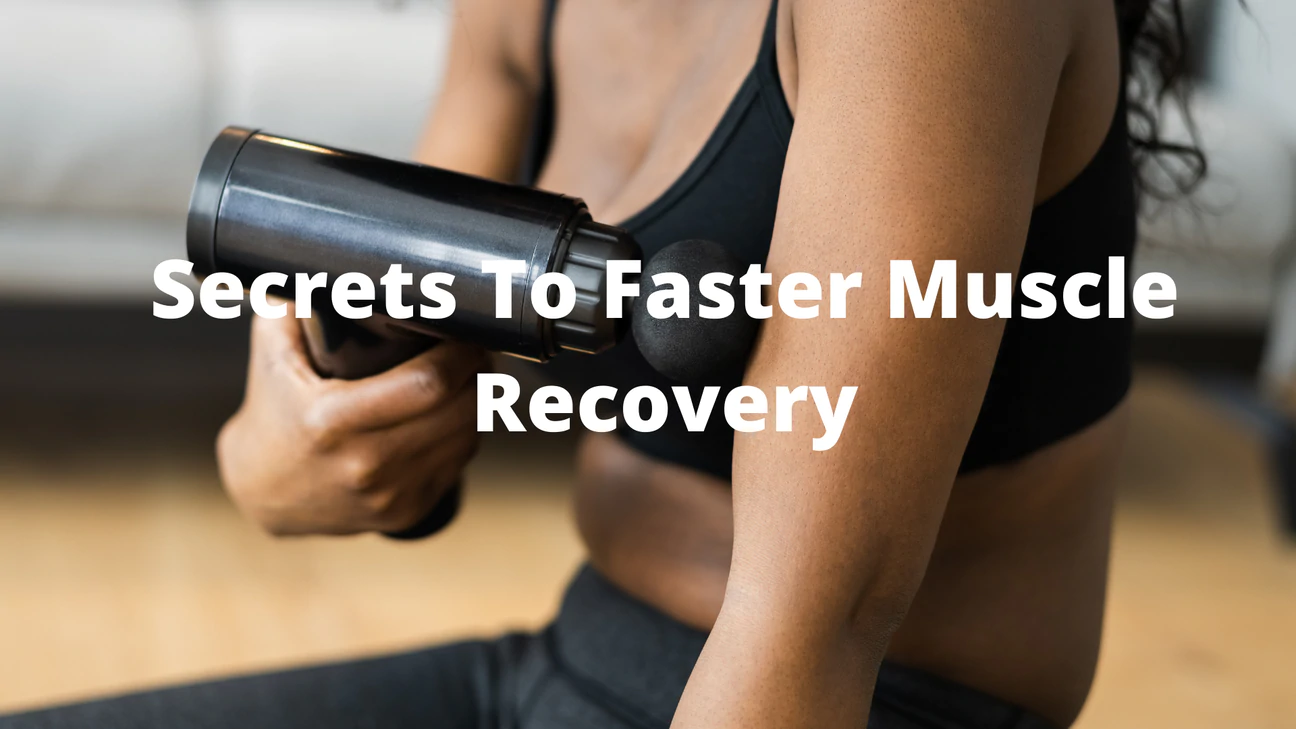Faster Muscle Recovery: 5 Different Secrets
Living an overall healthy lifestyle is the most important long-term step you can take to maximize your muscle recovery. No other method can make up for poor nutrition choices and a lack of rest. Your muscles are sore from the workout you did, and it does hurt.
Many people believe that they need all these expensive supplements to achieve the maximum results they want. Although some supplements do have benefits, you’re still not going to get maximum performance unless you’re already taking care of the basics.
No matter how strong you are, there will always be some form of wear and tear on your muscles every day. The best thing that can happen for this is to know what steps we need to take in order to recover quickly, so the muscles don’t get too sore or injured from an intense workout session! Here are 5 tips about maximizing post-workout muscle recovery:

Drink Your Water
Dehydration can slow down your muscles’ ability to repair themselves, and when you’re dehydrated, they’ll be more prone to having a slower rate of synthesizing new protein. It’s easy for people who work out in hot or humid weather because these conditions make them sweat profusely, leaving them without enough drinkable fluids (500-700ml per pound lost).
To avoid becoming weak from dehydration, always carry around something like an empty tumbler. Whenever possible, after exercising, take some tart cherry juice, as research has shown it helps reduce inflammation while also improving muscle recovery time following hard workouts.
Watch The Food You Consume
Consuming lots of protein helps muscle recovery. The proteins that make up your muscles can be damaged after working out, but drinking more during or shortly-after exercise may help give your body what it needs to repair those damages with building blocks like amino acids!
Research has found that 20 to 40 grams of protein or roughly 0.9 g/lb body weight is enough for maximum muscle growth. What is the best way to get this essential macronutrient before a workout? Protein bars!
Eating one with each meal and during the time leading up can help increase your muscles’ ability at being made into new proteins through stimulation from exercise-induced tissue damage. So you have more potential building blocks available when HIT comes knocking on those doors looking for entry cards tonight (or any other day).
Carbohydrates are the body’s primary source of energy during high-intensity interval training. If you want a quick way to restore your muscle glycogen levels after working out twice in one day, then focusing on healthy carbohydrates is excellent.
This includes fruits such as apples or sweet potatoes with their natural sugar that can quickly replenish our stores without being filled up too much by fat content like other sources might be prone to doing so.

Supplements
Creatine monohydrate is one of the most widely studied supplements. Many pieces of research consistently show that it does help improve muscular strength and recovery, especially when partnered up with resistance training.
Studies also found out that creatine helps athletes recover from intense training by reducing muscle damage and inflammation so you can replenish your muscles’ glycogen storage for optimal performance!
Protein powder is a great way to add more protein and speed up your muscle healing process. It’s convenient, has fast-acting characteristics that get absorbed by the body much faster than whole foods do so that you can recover quicker from workouts or other activities!
Many powders contain all nine essential amino acids, which make them easier on our systems – meaning less time spent feeling hungry between meals because it’ll take longer for us to eat enough food with those rich sources of nutrients.
Adjusting Your Lifestyle
Sleep is the best way to recover from a tough workout. If you’re not getting enough shuteye, your muscles won’t have time for repair and growth like they need it to perform at their peak each day of training with excellence on demand!
While professional athletes sleep an average of 10 hours per night (and some even more), one scientific research found that lack thereof might delay muscle recovery by impairing our body’s inflammatory reaction alongside hormones that aid this process.

Use a Massage Gun
Many athletes continue to incorporate massage into their training for a variety of reasons, and one reason is that it can help reduce muscle soreness after working out.
Research conducted this year revealed that massaging may be an effective way to manage your post-exercise recovery period by increasing flexibility as well as decreasing DOMS or Delayed Onset Muscle Soreness (the pain felt some days afterwards).
A massage gun is a great device to release tight muscles. It’s an alternative for booking appointments at spas, and you can relieve your body tension with the help of one in your own home instead!
One popular model that we recommend would be ABIS Deep Tissue Massage Gun SCM19 – it comes equipped with Whisper Glide motor technology which produces powerful vibration, but also makes sure it’s quiet enough not to wake up anyone else around you while giving yourself relief from soreness or stress.
The ABIS SCM19 is a must-have for those looking to increase their range of motion and get back to work quickly. With its four attachment heads, this tool provides deep tissue pressure to help you recover from minor strains in no time at all!
Conclusion
There are a lot of different ways to make your muscle recovery faster. However, you just need to be consistent with these methods so that they will recover even quicker.








